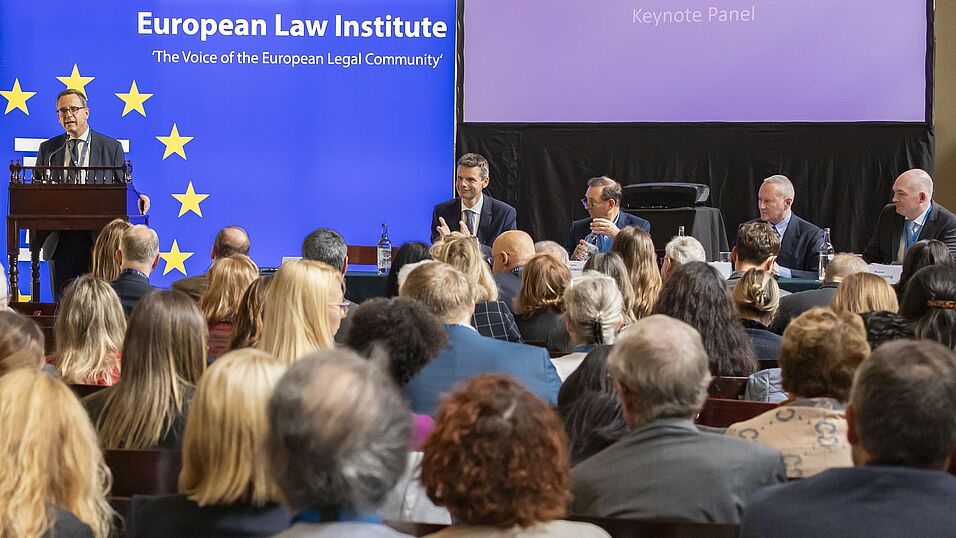The panel tackled the challenges and opportunities presented by Artificial Intelligence (AI) in relation to fundamental rights, showcasing how the law can navigate this rapidly advancing digital landscape. Dublin, home to many of Europe’s tech giants, provided the perfect backdrop for a timely and insightful discussion.
Marko Bošnjak (President, European Court of Human Rights) noted that while new technologies, particularly AI, present challenges to human rights, the European Convention on Human Rights, viewed as a ‘living instrument’, is equipped to handle these. Bošnjak was cautious about the possibility of adopting a new protocol to specifically address AI, and instead highlighted existing case law under various articles of the Convention that already tackle AI-related issues. He also stressed that although AI could reach a point where its judicial decisions might match human reliability, the human element in complex decision-making should never be fully replaced.
Michael O’Flaherty (Commissioner for Human Rights, Council of Europe), observed that AI has the potential to improve lives, but warned of the dangers posed by biased or inaccurate data, which could lead to flawed outcomes. He argued that regulation and innovation can coexist, and while the EU AI Act attempts to center human concerns, more needs to be done in the field. Among examples, he espoused the need for regulation in the arms industry. He also called for greater consistency across national regulations to ensure the robust protection of fundamental rights.
Rossa Fanning (Attorney General of Ireland) focused on the delicate balance needed between fostering innovative AI and implementing regulation. Fanning emphasised that the replacement of human decision-making with AI must be approached slowly and methodically, particularly when fundamental rights are at stake.
The exchange of views was followed by a lively discussion with participants, which touched upon ethical aspects of AI, AI agency, accountability of humans, among others.
The discussion was moderated by Owen Bowcott (Journalist)
We invite you to explore ELI’s Charter on Fundamental Constitutional Principles of a European Democracy and ELI’s Model Rules on Impact Assessment of Algorithmic Decision-Making Systems Used by Public Administration, among others.

